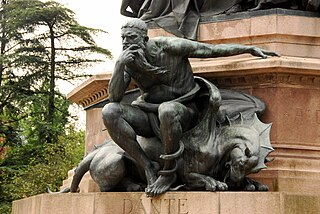Related Research Articles
In Greek mythology, Macar or Macareus or Macareas, is the name of several individuals:

In Greek mythology, Peneus was a Thessalian river god, one of the three thousand Rivers (Potamoi), a child of Oceanus and Tethys.

In Greek mythology, Harmonia is the goddess of harmony and concord. Her Roman counterpart is Concordia. Her Greek opposite is Eris, whose Roman counterpart is Discordia.
In Greek mythology, the name Thessalus is attributed to the following individuals, all of whom were considered possible eponyms of Thessaly.

In Greek mythology, Oenopion was a legendary king of Chios, and was said to have brought winemaking to the island, which was assigned to him by Rhadamanthys.
In Greek mythology, Pandorus may refer to the following personages:
In Greek mythology, Metion was an Athenian prince as the son of King Erechtheus and Praxithea, daughter of Phrasimus and Diogeneia.
In Greek mythology, Schoeneus was the name of several individuals:
In Greek mythology, Pisidice or Peisidice was one of the following individuals:
Protogeneia, in Greek mythology, may refer to:
In Greek mythology, Leucippus was a name attributed to multiple characters:
In Greek mythology, Praxithea was a name attributed to five women.
In Greek mythology, Orneus may refer to two different personages:
Euboea was the name of several women in Greek mythology.
Dexamenus was a name attributed to at least three characters in Greek mythology.
In Greek mythology, the name Hemithea refers to:

In Greek mythology, the name Crete may refer to several figures, all of whom are associated with the homonymous island of Crete, and may have been considered its eponyms:
In Greek mythology, Syme was the eponym of the island Syme.
In Greek mythology, the name Xanthus or Xanthos may refer to:
In Greek mythology, Ornea or Ornia was the possible eponymous nymph of Orneae, a town in Argolis. Otherwise, it is attributed to Orneus, the Athenian son of King Erechtheus.
References
- Diodorus Siculus, The Library of History translated by Charles Henry Oldfather. Twelve volumes. Loeb Classical Library. Cambridge, Massachusetts: Harvard University Press; London: William Heinemann, Ltd. 1989. Vol. 3. Books 4.59–8. Online version at Bill Thayer's Web Site
- Diodorus Siculus, Bibliotheca Historica. Vol 1-2. Immanel Bekker. Ludwig Dindorf. Friedrich Vogel. in aedibus B. G. Teubneri. Leipzig. 1888-1890. Greek text available at the Perseus Digital Library.
- Lucius Mestrius Plutarchus, Moralia with an English Translation by Frank Cole Babbitt. Cambridge, MA. Harvard University Press. London. William Heinemann Ltd. 1936. Online version at the Perseus Digital Library. Greek text available from the same website.
- Parthenius, Love Romances translated by Sir Stephen Gaselee (1882-1943), S. Loeb Classical Library Volume 69. Cambridge, MA. Harvard University Press. 1916. Online version at the Topos Text Project.
- Parthenius, Erotici Scriptores Graeci, Vol. 1. Rudolf Hercher. in aedibus B. G. Teubneri. Leipzig. 1858. Greek text available at the Perseus Digital Library.
- Stephanus of Byzantium, Stephani Byzantii Ethnicorum quae supersunt, edited by August Meineike (1790-1870), published 1849. A few entries from this important ancient handbook of place names have been translated by Brady Kiesling. Online version at the Topos Text Project.